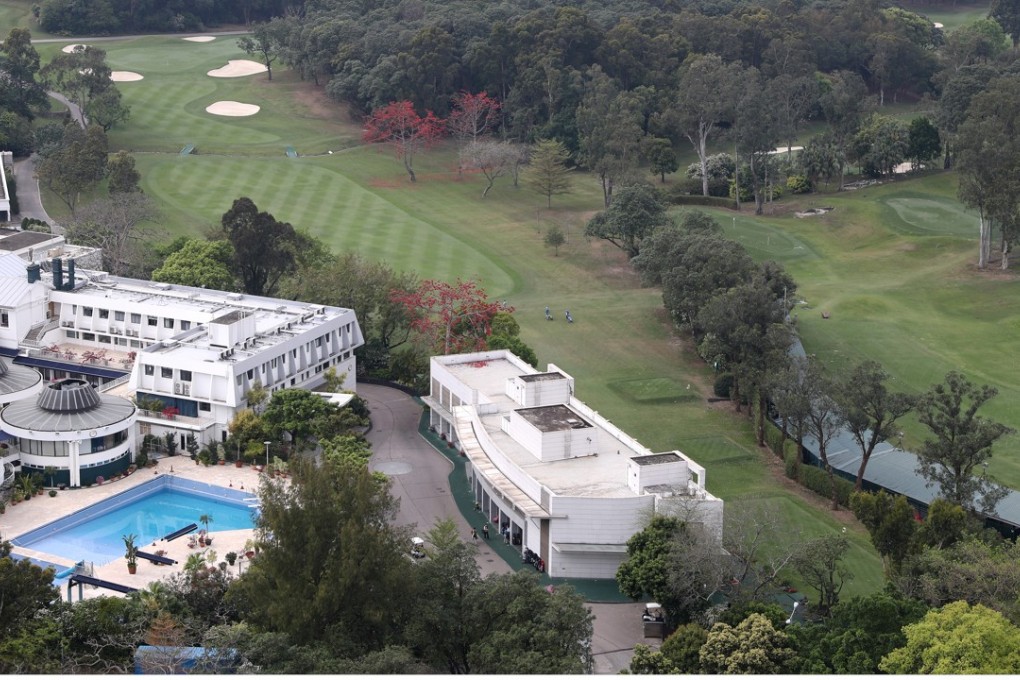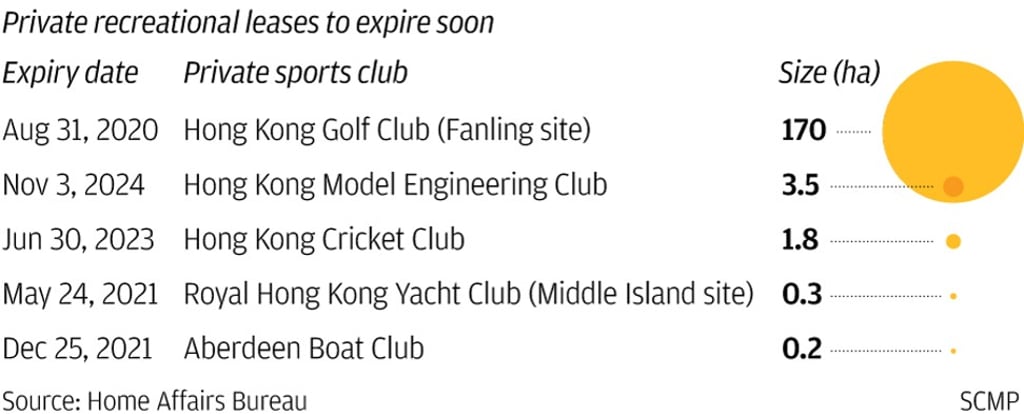Some elite Hong Kong sports clubs need only admit a few new members to cover land fee plan
Home Affairs minister argues full premium could threaten their existence, but critics say cash-rich organisations should broaden their access to the public

Some elite, cash-rich sports clubs in Hong Kong only need to admit as few as three new members to cover a proposed increase in land premiums in a one-off payment for lease renewal, contrary to what the government told the public, a land expert has claimed.
The clubs would also need to expand public access to their facilities if they want to renew the leases. Under the plan, they would need to offer up to 30 per cent of their sporting capacity to eligible outside bodies, and partner with sports groups to organise public programmes covering a minimum of 240 hours a month.
But the new rule would not take effect until 2027 because clubs would need more time to collect enough money, the government said.
Officials added that making the clubs pay the sites’ full values would stifle their operations.
